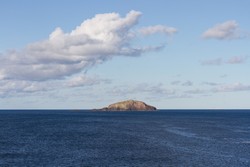Island myth shows common belief link for Europe
The mythologies of many medieval and ancient cultures across Europe have spoken of mysterious paradise islands where immortal beings reign and often where beautiful women abound. The Isle of Avalon in Arthurian legend, Glæsisvellir in Scandinavia and the ‘islands of the blessed’ in Graeco-Roman literature are three important examples of this, with references in Celtic lore as well. Against this backdrop, the EU-funded IITW(opens in new window) (Islands in the west) project investigated the similarities among these myths to establish whether or not there is a religious connection that has influenced them all. The project worked on ascertaining or disproving the religious link, shedding light as well on the mechanisms of religious contact in Europe during ancient times but also during the Middle Ages. To achieve its aims, the project team meticulously researched the immortal island concept in Nordic, Irish, Arthurian, Celtic, Etruscan, Roman and Greek lore and literature. It looked at ‘otherworlds’ beyond the sea in different references, including Viking burial customs, Old French poetry and classical ethnographic writing. The in-depth research finally revealed strong evidence of long-term existence of paradise-like otherworldly islands in the religious history of Europe. It noted how classical Graeco-Roman geographical myths of islands of immortality reached as far as medieval Irish literature and Old Norse-Icelandic cosmology. IITW also identified four distinct types of intercultural links regarding the islands in the west: influence, borrowing, adaptation and quotation. Project results were published in two monographs, one in German and the other in English. The outcomes highlight the openness of the Germanic/Nordic culture, helping to dispel any racist or xenophobic connotations that it had undeservedly been stigmatised with. This is yet another excellent example of a common European heritage.







